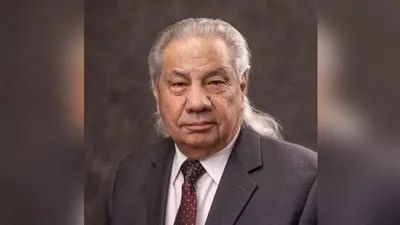Jason Kerkmans Board Member | New Mexico Wildlife Federation
Killing big-game animals with traditional lead-core bullets often results in lead fragments left in the field, which can harm wildlife such as eagles. Aaron Kindle, director of sporting advocacy with the National Wildlife Federation, has switched to using copper bullets for hunting to avoid this issue.
Kindle will discuss the benefits of non-lead ammunition at the New Mexico Wildlife Federation’s "Wildlife Wednesday" event on May 14. The event will take place at Marble Brewery’s Northeast Heights Taproom in Albuquerque and is free to attend.
Kindle believes that choosing non-lead ammunition aligns with hunting ethics. "Most sportsmen, at least the good ones I know, don’t want to be harming other wildlife," he said. He emphasized that hunters are responsible for their bullets even after they leave them in the field.
The New Mexico Wildlife Federation is part of the North American Non-Lead Partnership, which educates hunters about non-lead ammunition. Jesse Deubel, NMWF executive director, stated that it's crucial for hunters to act as conservationists to preserve hunting traditions.
The partnership was founded by biologists who noted condor restoration efforts were hindered by lead bullet fragments. Kindle serves as an ambassador for Sporting Lead-Free, a group born from raptor biologists' work at the Teton Raptor Center.
Demonstrations comparing conventional lead-core and copper bullets show significant differences in fragmentation. Kindle explained that copper bullets retain most of their weight compared to lead bullets which break into many particles.
Switching voluntarily to non-lead ammunition could prevent government bans on certain types of ammo. While federal regulations have banned lead shot for waterfowl since 1991 and California prohibits all lead-based hunting ammo, other states have partial restrictions or recommendations.
Hunters like Kindle research every aspect of their sport thoroughly and can benefit from learning about non-lead options. "When you do that and leave the decision up to them, we find that hunters often make the right decision," Kindle said.
Kindle's own transition began after realizing how much damage lead fragments caused when he shot an elk years ago. Studies showing extensive spread of lead prompted him to learn more about its impact on game meat and wildlife.
As a meat hunter using a .30-06 rifle inherited from his father, Kindle opts for Barnes TTSX copper bullets due to their reliability and accuracy. He stresses good shot placement is essential regardless of bullet type.
Though some hunters claim issues with copper at long ranges due to less expansion at lower velocities, Kindle finds it effective within his range limits. "It kind of fit perfectly," he said regarding his choice for ethical reasons and wildlife protection.
At his presentation, Kindle invites questions from those considering switching to non-lead ammunition.









